#fonz productions
Explore tagged Tumblr posts
Text
Outro
#cinemetography#puma#puma shoes#cinematic#bagseason#aesthetic#fonz productions#productphotography#studio#yellow
7 notes
·
View notes
Text

This dirty, duplicitous piece of MKULTRA shit can go straight to hell. His days of fooling anyone around here, are OVER.
#Ron Howard#You Shouldn't Have Even Tried It Disney#Jim Henson and The Muppets#Henry Winkler Character The Fonz Used For Decades As Trigger#Desilu Productions#Tom Hanks#ANYONE GETTING INVOLVED WITH TEAM Z WILL CATCH NOTHING BUT SCORN
1 note
·
View note
Text
Henry Winkler Vs. Wayne Rogers

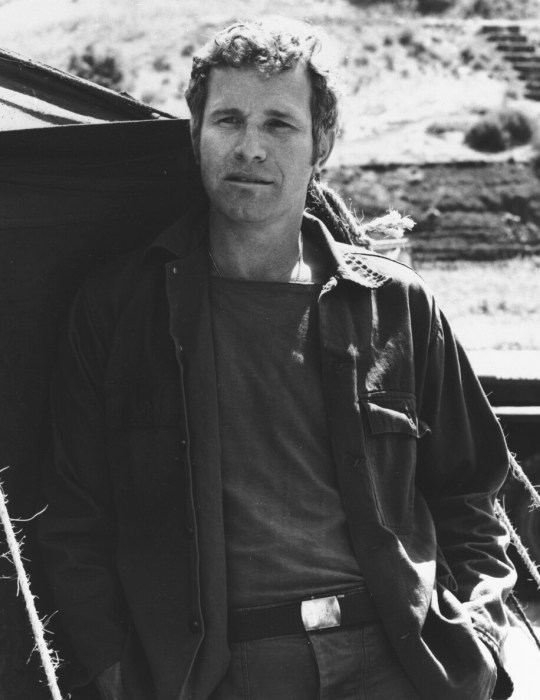
Propaganda
Henry Winkler - (Happy Days) - The Fonz created cool. He’s a greaser with a heart of gold; a totally swoon worthy bad boy. And he’s a talented mechanic - I wish I could fix all appliances the way he does.
Wayne Rogers - (M*A*S*H, Stagecoach West, City of Angels) - "He just had this warmth and gentleness to him that made him sooo attractive no matter at what age..." Full text propaganda below the cut.
- No Negative Propaganda Please -
Master Poll List | How to submit propaganda | What is vintage? (FAQ)
Additional propaganda below the cut
Henry Winkler:

I had a crush on him when I watched Happy Days reruns when I was a kid. He was also an executive producer on So Weird, which is one of my favorite childhood shows.
youtube
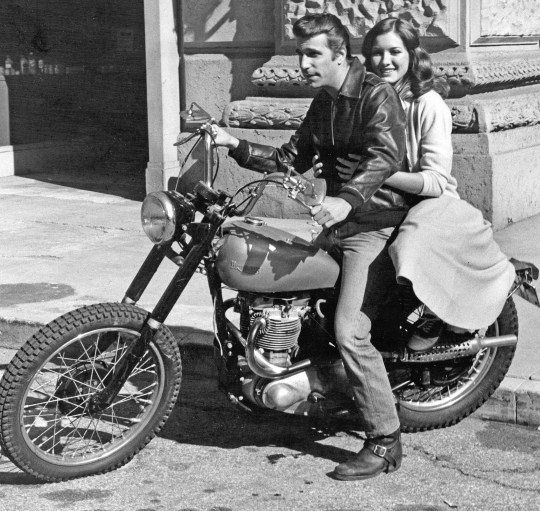
Look, he's The Fonz, what more is there to say?
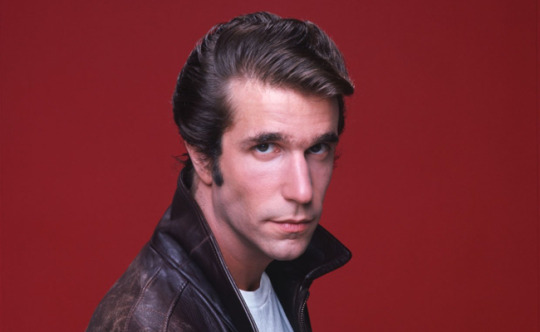
youtube
Wayne Rogers:
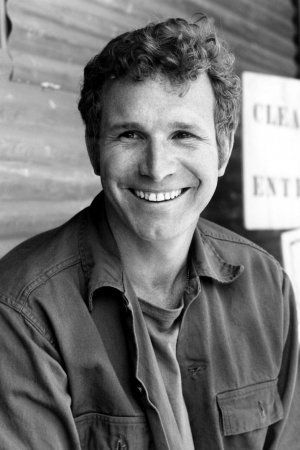
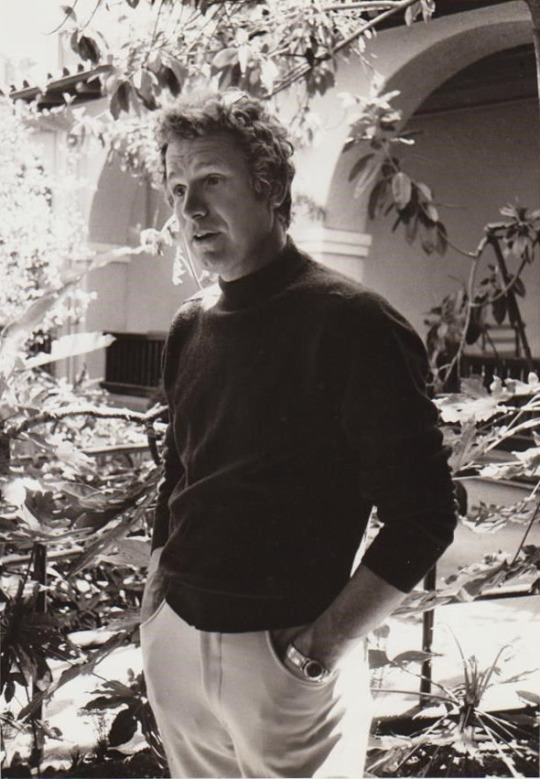
He just had this warmth and gentleness to him that made him sooo attractive no matter at what age. If his good looks and his charming smile (and those curls ahh!) aren't enough to convince you to vote for this nice, funny, 6ft tall man, then let me hit you with some random information What i adore is the duality of this man! First he served his duty in the navy and was about to study law when he accompanied a friend to a theatre play one evening and was so amazed by the art of acting that he decided to achieve an acting career instead. When he wanted to leave MASH after only three seasons -although the contract said for him to stay much longer-, they couldn't do anything about it bc he hadn't even signed it in the first place (there was a paragraph in it that he strongly disagreed with). If that isn't badass idk what is! And later in his career, not only did he act, write and produce all kinds of TV, movie and stage productions but he also started a successful financial business. Also (at least when he was older) he supposedly went for a swim in the sea EVERY morning. Btw when he was still getting started and was financially struggling, he shared a flat in New York and an overcoat for auditions with (also still struggling) colleague Peter Falk.
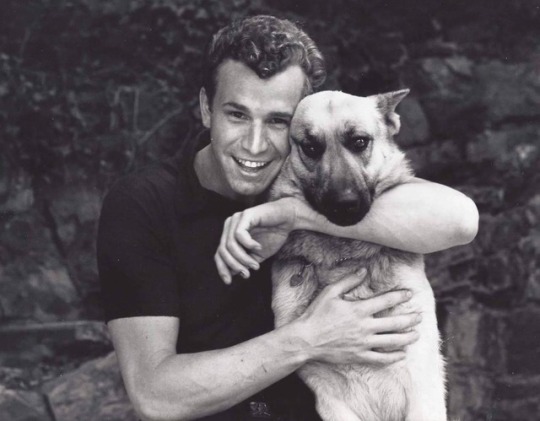
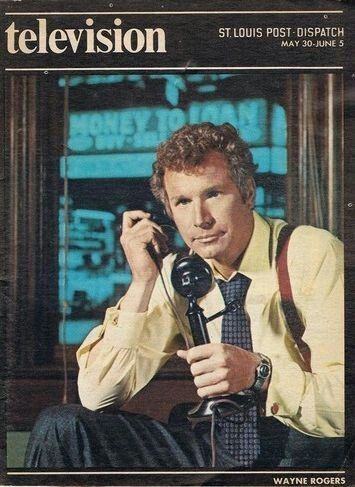

youtube
72 notes
·
View notes
Note
The Playlist website:
“Thank you to the Television Academy for this honor. I feel incredibly grateful to be recognized alongside my fellow nominees and awe-inspiring cast-mates Niecy Nash-Betts and Richard Jenkins. Congratulations to our brilliant directors Paris Barclay and Carl Franklin on their nominations, as well as to our entire cast and crew who worked tirelessly on Monster. I feel beyond grateful to Ryan Murphy for his unbending support, to all our courageous and irreplaceable writers, and to all our pre and post-production teams. Thank you!!!”
-Evan Peters
Dahmer – Monster: The Jeffrey Dahmer Story – Lead Actor In A Limited Or Anthology Series Or Movie
https://theplaylist.net/emmy-nominee-reactions-jessica-chastain-pedro-pascal-evan-peters-elton-john-more-20230712/
<333
(i'm just seeing henry winkler got a nomination for best supporting actor. i don't know the series he is in, but i loved classic sitcoms growing up and happy days was my favorite.. the fonz was like, the biggest deal to me as a kid lmao recently was at an antique shop and found a signed mint in box action figure and snatched it up. how wonderful for him)
1 note
·
View note
Video
youtube
Koffee Brown - After Party (Video Version) Koffee Brown - "After Party" (Music Video Version) w/ Next, Jaheim, and Divine Mill All-Stars https://youtu.be/6iHJ4ci7y-o?si=KgshvqMCkL04nKz1 via @YouTube Performed by Vee & Fonz. Written, Produced, and Arranged by Kay Gee for Naughty By Nature Productions.
#youtube#Koffee Brown - After Party (Music Video Version) w/ Next Jaheim and Divine Mill All-Stars https://youtu.be/6iHJ4ci7y-o?si=KgshvqMCkL04nKz1
0 notes
Text
youtube
1/15/24: It was 50 years ago today, January 15th, 1974, Happy Days would premiere on the ABC television network. This intro has the original theme song which was a re-recorded 'Rock Around the Clock' by Bill Haley & the Comets... this would be supplanted by the more familiar 'Happy Days Theme' in the show's 3rd season (reaching Billboard #5 in '76!). The ultimate in Boooooomer nostalgia this show was, and the early seasons were pretty loyal to the '50s theme, although throughout the 11 seasons it got harder and harder to mask that this was somehow a throwback. The show was immensely popular, fueling several successful spin-offs including Laverne & Shirley and Mork & Mindy (and less successful like Joanie Loves Chachi... p.u.!!). Now famous director Ron Howard was the center of the show's story as Richie Cunningham, along with his family and his friend Potsie (Anson Williams); however, he would be largely supplanted by Henry Winkler's iconic character the Fonz, or Fonzie, who would eventually be the top billed star after Howard left the show after season seven (1980). Another by-product of the show for the internet age was the 'Jump the Shark' moment when Fonzie literally jumps over a shark in water skis in season five-- this phrase later came to represent when a television show (or really, I guess anything) hit its peak and then began falling. I watched a shitload of this show in both new shows and reruns when I was a kid... eleven fucking seasons worth. It even had a horrible Saturday morning cartoon churned out by Hanna-Barbera in the early 1980s. Definitely a cultural touchstone for Boomer (and some Gen X) nostalgia.
0 notes
Text
Being Henry: The Fonz . . . and Beyond
Being Henry: The Fonz . . . and Beyond Being Henry: The Fonz . . . and Beyond This is an affiliate link that will direct you to the store where this product can be purchased. This program is read by the author. From Emmy-award winning actor, author, comedian, producer, and director Henry Winkler, a deeply thoughtful memoir of the lifelong effects of stardom and the struggle to become whole. Henry…

View On WordPress
0 notes
Text
youtube
In this exclusive AARP interview, beloved actor Henry Winkler reflects on overcoming dyslexia, typecasting and self-doubt to create a wide-ranging career that led to his first Primetime Emmy at 72 years old. He is featured on the cover of AARP The Magazine’s October/November 2023 issue.
Henry Winkler was not someone destined for success in Hollywood. Growing up in 1950s New York City as the son of German Jewish immigrants who fled the Holocaust, he struggled with undiagnosed dyslexia, which made it difficult for him to read and achieve in school. Nonetheless, at 28 years old, he scored the part of Arthur Fonzarelli, also known as “Fonzie” or “The Fonz” on the hit ABC sitcom “Happy Days,” created by Garry Marshall. Playing Fonzie transformed Winkler into an international superstar and a household name.
After “Happy Days,” Winkler faced a new struggle: typecasting. Casting directors couldn’t see Winkler pulling off anything other than a leather jacket-wearing “greaser.” Despite this, Winkler pushed forward and developed his own path. He started his own production company and executive produced a number of TV shows and films, including Rob Reiner’s “The Sure Thing” (1985) and the original “MacGyver” TV series (1985-1992.) He also performed with John Ritter on Broadway and cowrote 39 children’s books, including a series about the adventures of a boy named Hank Zipzer, who has dyslexia.
Winkler’s acting career picked up again in the 1990s and 2000s. He landed roles in films such as “Scream” (1996) and “Holes” (2003), and he worked with Adam Sandler on films including “The Waterboy” (1998) and “Click” (2006). In 2003, he started a role as lawyer Barry Zuckerkorn in Mitch Hurwitz’s “Arrested Development,” and in 2013, he got a recurring role as Dr. Lu Saperstein on Michael Schur’s “Parks and Recreation.” Winkler’s next big break came in 2018 when he debuted as acting teacher Gene Cousineau in the HBO dark comedy “Barry,” created by Bill Hader and Alec Berg. His role as Gene earned him his first Primetime Emmy in 2018 for outstanding supporting actor in a comedy series.
1 note
·
View note
Text
Eco-Friendly and Cost-Effective #EdTech - HoET221
Featured Content (2:47)
Frank Bouchard is the co-founder of Wipebook. During our conversation Frank and I talk about the following:
The history and technology behind Wipebook's reusable notebooks
Examples of how Wipebook's notebooks are being used in education settings
Wipebook's technology in the future
Why should people use and or purchase products from Wipebook
EdTech Thought (26:13)
Our AI Responsibility
In a recent blog post, Fonz from My EdTech Life discusses the growing presence of artificial intelligence (AI) in education and the potential risks of overreliance on AI tools. His post highlights the importance of using AI as a tool for critical thinking and meaningful application, rather than a crutch that hinders learning. The post emphasizes the need to teach students responsible AI usage, including awareness of data laws, ethical concerns, and digital citizenship. By promoting a balanced approach to AI in education, students can be better prepared for success in the modern workforce.
We also need to help our colleagues by sharing knowledge, experiences, and best practices related to AI in education.
Actively seek opportunities
Foster a culture of collaboration
Provide mentorship and guidance
EdTech Recommendation (0:00)
3 Must-have Chrome Extensions
Save to Google Drive
Have you ever found an article or image online that you want to save for later, but don't want to clutter up your bookmarks? Save to Google Drive is the perfect solution. This extension allows you to save web content like images, videos, links, and various types of files to your Google Drive for later viewing. This is a great way to keep everything organized in one place and easily accessible from any device.
Compose AI
Improving your writing skills is crucial in today's digital age, and Compose AI is here to help. This extension enhances grammar checking and generates text using AI to auto-complete sentences in your browser, such as in Gmail, Outlook, and Google Docs. Compose AI can also suggest ways to improve your writing and make it more engaging.
Privacy Badger
Privacy is a growing concern for many people, and Privacy Badger is here to help. This extension blocks trackers based on their behavior to improve privacy while browsing the web. Created by the Electronic Frontier Foundation, Privacy Badger helps protect your personal information and keep your browsing habits private.
Just Give It A Try (34:47)
New Canva Tools!
Draw
Magic Design
Magic Presentation
Magic Edit & Eraser
Beat Sync
Animation
Translate
House of #EdTech VIP (40:08)
Alli McCrary
Waltham, MA
Teacher, EdTech Coach, Digital Literacy Focused, Chat GPT & AI Obsessed.
aiclassroom.me
Check out this episode!
0 notes
Text
Coinbase Launches Wallet-as-a-Service to Bring Millions to Web3

On March 8, Coinbase announced the launch of its Wallet-as-a-Service (WaaS) product. The WaaS product aims to “bring the next hundred million consumers into Web3 through a seamless wallet-onboarding experience.” The Coinbase WaaS offers wallet infrastructure application programming interfaces (APIs) to companies, enabling them to build their own custom Web3 crypto wallets.
Coinbase’s Wallet-as-a-Service Aims to Simplify Onboarding
Coinbase Global (Nasdaq: COIN) has revealed a new addition to its suite of offerings and services: Wallet-as-a-Service (WaaS). In a Twitter thread, Coinbase stated that the WaaS “is a scalable and secure set of wallet infrastructure APIs, enabling companies to create and deploy fully customizable onchain wallets.” Additionally, the Coinbase wallet infrastructure provides “multi-party computation (MPC)” cryptography, which removes the need to manage a complicated 24-word recovery phrase. 1/ Today we introduce Wallet as a Service, making it easier for any company or brand to seamlessly onboard their users to web3 …even if they have never used cryptocurrency before. pic.twitter.com/5IKUJHpQlS — Coinbase (@coinbase) March 8, 2023 Coinbase detailed that crypto firms such as Tokenproof, Floor, Thirdweb, and Moonray are already using its Wallet-as-a-Service (WaaS). Coinbase believes that the WaaS will aid in bringing the “next hundred million consumers into Web3.” “More and more companies are realizing that Web3 will generate a massive industry of new decentralized applications and services, and they want to empower their customers to access it,” Coinbase stated in the announcement. “When users download the Tokenproof app, we’ll create their first wallet, powered by Coinbase, to welcome them into Web3,” said Fonz, the founder of Tokenproof, in a statement. “This is a significant step towards making the space more approachable and accessible, and we’re excited about the opportunity to work with such a highly trusted partner.” Besides the WaaS, Coinbase provides developers with a wallet software development kit (SDK), a payments SDK, the commerce API, and other blockchain integrations. What are your thoughts on Coinbase’s Wallet-as-a-Service? Let us know in the comments section below. Read the full article
0 notes
Text
25 THINGS I’VE LEARNED IN 25 YEARS IN TV WRITING
Well, it’s actually been 30 years now, but here’s a spew I did 5 years ago on the bird app to commemorate my 25 years as a TV writer.
I’ve edited it a bit for clarity. Hopefully some of you will find it useful.
1. In TV writing (and writing in general) there is only one unbreakable rule: Thou shalt not be boring.
2. Write characters people want to hang out with for an hour or so once a week for years to come. Even if they're bad people, make them interesting, engaging bad people.
3. If your lead is a bad person, make them funny and/or sexy. Direct most of their bad behavior toward other bad people or themselves. Make them well motivated. Maintain rooting interest.
4. What makes a character special should be intertwined with what makes them struggle. Perfect people are boring.
5. Characters should complement/conflict with each other. No two characters should serve the same purpose/have the same backstory/have the same voice.
6. Cast the best actor, adjust the character to suit.
7. Give your leads the best lines/moments. No one is tuning in to watch the funny guest star. Like Garry Marshall said back on HAPPY DAYS, “I’m paying Henry Winkler $25,000 an episode. Give the Fonz the jokes.”
8. Your characters, good & bad, should reflect the reality of our wonderful, diverse world. White male shouldn’t be the default.
9. Avoid stereotypes. Stereotypes are boring.
10. If all your POV characters know some secret, the audience should know it too.
11. If your show hinges on a big mystery, know more or less what the truth is from the beginning. You can change it later if you need to, but write to a specific.
12. If your story doesn’t test your characters mentally, physically, psychologically, emotionally, or spiritually, you don’t have a story.
13. You can start by figuring out the Beginning, the Middle, or the End, but you don’t have an episode until you have all three.
14. Big suspenseful act outs (the last moments before the commercials) aren’t just a gimmick. They’re a good way to structure an hour of entertainment to make sure the audience is invested and your pacing is solid.
15. Every scene should be a consequence of the previous scene or a refutation of it.
16. A scene also needs a Beginning, Middle, and End. The end should propel the characters and/or audience into the next scene.
17. Every scene is a negotiation/confrontation between two or more characters who want different things or have different ideas on how to solve the same problem.
18. A good action scene is still a character scene. With punching. (This applies to sex scenes too, but you know, with sex.)
19. A crap page is better than a blank one.
20. It’s easier to cut than to add.
21. Good things rarely happen in the Writers Room after dinner. Go home, get some rest, write pages at home if you have to, start fresh in the morning. Writers who have a life outside the writing room are better writers. Beware the showrunner who doesn't want to go home to their family. That said…
22. Script by day one of Pre-Production. No matter what.
23. You’re a writer first. Almost nothing happening on set or in post is more important than the writing. Delegate when possible.
24. Make an extra effort to surround yourself with writers who are different from you (background, race, gender, orientation, etc). Listen to their perspectives, especially on experiences alien to you.
25. And in the end the love you take is equal to the love you make. In TV writing and life in general.
PART TWO HERE:
https://at.tumblr.com/writergeekrhw/25-things-in-25-years-part-2-25-things-ive/okjzwofyiq6i
4K notes
·
View notes
Note
hi i just wanted you to know that every time i have seen a post from you in the past on my dash i hadn’t taken a good look at your icon and from a quick glance i thought it was eric andre until literally right now when i actually looked at it. anyway have a nice day!
this is absolutely hilarious anon please have an amazing day
#ask#ollie considers#what is your song o?#anonymous#my mother thinks tézier looked like the fonz in a previous production of forza that we watched#the poor guy can't win#Anonymous
0 notes
Photo

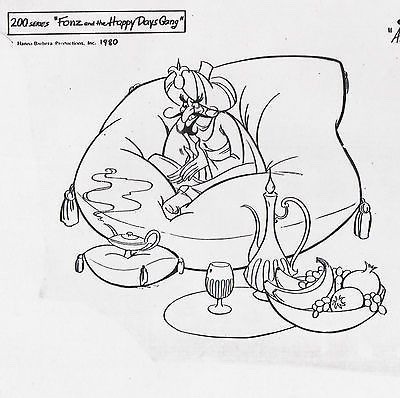




"Ay–I feel silly!“
And of course Fonzie had to have a dog that was called “Mr. Cool”. I believe that character was created specifically to piss me off.
Production art from the 1980 Hanna-Barbera cartoon, Fonz & The Happy Days Gang. Well-drawn though.
#animation#animation art#production art#production drawings#model sheet#happy days#the fonz#fonzie#cartoon#1980s
39 notes
·
View notes
Link
I love NYC. When I first moved to NYC it was a dream come true. Every corner was like a theater production happening right in front of me. So much personality, so many stories.
Every subculture I loved was in NYC. I could play chess all day and night. I could go to comedy clubs. I could start any type of business. I could meet people. I had family, friends, opportunities. No matter what happened to me, NYC was a net I could fall back on and bounce back up.
Now it's completely dead. "But NYC always always bounces back." No. Not this time. "But NYC is the center of the financial universe. Opportunities will flourish here again." Not this time.
"NYC has experienced worse". No it hasn't.
…
Three of the most important reasons to move to NYC:
- business opportunities
- culture
- food
…
Midtown Manhattan, the center of business in NYC, is empty. Even though people can go back to work, famous office buildings like the Time Life skyscraper is still 90% empty. Businesses realized that they don't need their employees at the office.
In fact, they realize they are even more productive without everyone back to the office. The Time Life building can handle 8,000 workers. Now it maybe has 500 workers back.
…
"What do you mean?" a friend of mine said to me when I told him 'Midtown should be called 'Ghost Town', "I'm in my office right now!"
"What are you doing there?"
"Packing up," he said and laughed, "I'm shutting it down." He works in the entertainment business.
Another friend of mine works at a major investment bank as a managing director. Before the pandemic he was at the office every day, sometimes working from 6am to 10pm.
Now he lives in Phoenix, Arizona. "As of June," he told me, "I had never even been to Phoenix." And then he moved there. He does all his meetings on Zoom.
I was talking to a book editor who has been out of the city since early March. "We've been all working fine. I'm not sure why we would need to go back to the office."
One friend of mine, Derek Halpern, was convinced he'd stay. He put up a Facebook post the other day saying he might be changing his mind.
…
People say, "NYC has been through worse" or "NYC has always come back."
No and no.
First, when has NYC been through worse?
Even in the 1970s, and through the 80s, when NYC was going bankrupt, and even when it was the crime capital of the US or close to it, it was still the capital of the business world (meaning: it was the primary place young people would go to build wealth and find opportunity), it was culturally on top of its game - home to artists, theater, media, advertising, publishing, and it was probably the food capital of the US.
…
In early March, many people (not me), left NYC when they felt it would provide safety from the virus and they no longer needed to go to work and all the restaurants were closed. People figured, "I'll get out for a month or two and then come back."
They are all still gone.
And then in June, during rioting and looting a second wave of NYC-ers (this time me) left. I have kids. Nothing was wrong with the protests but I was a little nervous when I saw videos of rioters after curfew trying to break into my building.
…
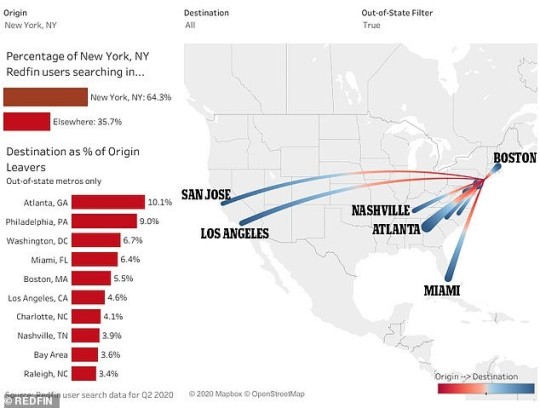
…
Summary: Businesses are remote and they aren't returning to the office. And it's a death spiral: the longer offices remain empty, the longer they will remain empty.
In 2005, a hedge fund manager was visiting my office and said, "In Manhattan you practically trip over opportunities in the street."
Now the streets are empty.
…
I co-own a comedy club, Standup NY, on 78th and Broadway. I'm very very proud of the club and grateful to my fellow owners Dani Zoldan and Gabe Waldman and our manager Jon Boreamayo. It's a great club. It's been around since 1986 and before that it was a theater.
One time, Henry Winkler stopped by to come on my podcast. He was the one who told me it had been a theater.
He said, "I grew up two doors down from here and used to perform in here as a kid. Then I went out to LA to be the Fonz and now I'm back here, full circle, to be on your podcast. This place has history." Things like that happen in NYC.
…
I love the club. Before the pandemic I would perform there throughout the week in addition to many other clubs around the city and in the past few months, clubs in: Chicago, Denver, San Jose, LA, Cincinnati, all over the Netherlands, and other places.
I miss it.
…
That said, we have no idea when we will open. Nobody has any idea. And the longer we close, the less chance we will ever reopen profitably.
Broadway is closed until at least the Spring. Lincoln Center is closed. All the museums are closed.
Forget about the tens of thousands of jobs lost in these cultural centers. Forget even about the millions of dollars of tourist and tourist-generated revenues lost by the closing of these centers.
There are thousands of performers, producers, artists, and the entire ecosystem of art, theater, production, curation, that surrounds these cultural centers. People who have worked all of their lives for the right to be able to perform even once on Broadway whose lives and careers have been put on hold.
I get it. There was a pandemic.
But the question now is: what happens next? And, given the uncertainty (since there is no known answer), and given the fact that people, cities, economies, loathe uncertainty, we simply don't know the answer and that's a bad thing for New York City.
…
My favorite restaurant is closed for good. Ok, let's go to my second favorite. Closed for good. Third favorite, closed for good.
I thought the PPP was supposed to help. No? What about emergency relief? No. Stimulus checks? Unemployment? No and no. Ok, my fourth favorite, or what about that place I always ordered delivery from? No and no.
Around Late May I took walks and saw that many places were boarded up. Ok, I thought, because the protesting was leading to looting and the restaurants were protecting themselves. They'll be ok.
Looking closer I'd see the signs. For Lease. For Rent. For whatever.
Before the pandemic, the average restaurant had only 16 days of cash on hand. Some had more (McDonalds), and some had less (the local mom-and-pop Greek diner).
Yelp estimates that 60% of restaurants around the United States have closed.
My guess is more than 60% will be closed in New York City but who knows.
Someone said to me, "Well, people will want to come in now and start their own restaurants! There is less competition."
I don't think you understand how restaurants work.
…
If the restaurants are no longer clustered, fewer people go out to eat (they are on the fence about where so they elect to stay home). Restaurants breed more restaurants.
And again, what happens to all the employees who work at these restaurants? They are gone. They left New York City. Where did they go? I know a lot of people who went to Maine, Vermont, Tennessee, upstate, Indiana, etc - back to live with their parents or live with friends or live cheaper. They are gone and gone for good.
And what person wakes up today and says, "I can't wait to set up a pizza place in the location where 100,000 other pizza places just closed down." People are going to wait awhile and see. They want to make sure the virus is gone, or there's a vaccine, or there's a profitable business model.
Or...even worse.
…
If building owners and landlords lose their prime tenants (the store fronts on the bottom floor, the offices on the middle floors, the well-to-do on the top floors, etc) then they go out of business.
And what happens when they go out of business?
Nothing actually. And that's the bad news.
People who would have rented or bought say, "Hmmm, everyone is saying NYC is heading back to the 1970s, so even though prices might be 50% lower than they were a year ago, I think I will wait a bit more. Better safe than sorry!"
And then with everyone waiting... prices go down. So people see prices go down and they say, "Good thing I waited. But what happens if I wait even more!" And they wait and then prices go down more.
This is called a deflationary spiral. People wait. Prices go down. Nobody really wins. Because the landlords or owners go broke. Less money gets spent on the city. Nobody moves in so there is no motion in the markets. And people already owning in the area and can afford to hang on, have to wait longer for a return of restaurants, services, etc that they were used to.
Well, will prices go down low enough everyone buys?
Answer: Maybe. Maybe not. Some people can afford to hang on but not afford to sell. So they wait. Other people will go bankrupt and there will be litigation, which creates other problems for real estate in the area. And the big borrowers and lenders may need a bailout of some sort or face mass bankruptcy. Who knows what will happen?
…
I lived three blocks from Ground Zero on 9/11. Downtown, where I lived, was destroyed, but it came roaring back within two years. Such sadness and hardship and then quickly that area became the most attractive area in New York.
And in 2008/2009, much suffering during the Great Recession, again much hardship, but things came roaring back.
But...this time it's different. You're never supposed to say that but this time it's true. If you believe this time is no different, that NYC is resilient, etc I hope you're right.
I don't benefit from saying any of this. I love NYC. I was born there. I've lived there forever. I STILL live there. I love everything about NYC. I want 2019 back.
But this time it's different.
One reason: bandwidth.
In 2008, average bandwidth speeds were 3 megabits per second. That's not enough for a Zoom meeting with reliable video quality. Now, it's over 20 megabits per second. That's more than enough for high quality video.
There's a before and after. BEFORE: no remote work. AFTER: everyone can remote work.
…
Everyone has spent the past five months adapting to a new lifestyle. Nobody wants to fly across the country for a two hour meeting when you can do it just as well on Zoom. I can go see "live comedy" on Zoom. I can take classes from the best teachers in the world for almost free online as opposed to paying $70,000 a year for a limited number of teachers who may or may not be good.
Everyone has choices now. You can live in the music capital of Nashville, you can live in the "next Silicon Valley" of Austin. You can live in your hometown in the middle of wherever. And you can be just as productive, make the same salary, have higher quality of life with a cheaper cost to live.
…
Wait for events and conferences and even meetings and maybe even office spaces to start happening in virtual realities once everyone is spread out from midtown Manhattan to all over the country.
The quality of restaurants will start to go up in all the second and then third tier cities as talent and skill flow to the places that can quickly make use of them.
Ditto for cultural events.
And then people will ask, "wait a second - I was paying over 16% in state and city taxes and these other states and cities have little to no taxes? And I don't have to deal with all the other headaches of NYC?"
Because there are headaches in NYC. Lots of them. It's just we sweep them under the table because so much else has been good there.
NYC has a $9 billion deficit. A billion more than the Mayor thought they were going to have. How does a city pay back its debts? The main way is aid from the state. But the state deficit just went bonkers. Then is taxes. But if 900,000 estimated jobs are lost in NYC and tens of thousands of businesses, then that means less taxes unless taxes are raised.
…
What reason will people have to go back to NYC?
55 notes
·
View notes
Text

https://fonzpvd.com/collections/spring-2020-collection/products/fonz-futura-t-shirt
NOW AVAILABLE AT FONZPVD.COM!
#TheUnderGod x FonzPVD.com
21 notes
·
View notes
Text
J/H 4-14: Jackie Says Cheese
Following production order, the next few episodes - "Red and Stacey," "Eric's Hot Cousin," "The Third Wheel," and "An Eric Forman Christmas" all remain unchanged in this timeline. I imagine some of you are surprised "The Third Wheel" didn't come in for a rewrite, and I watched it multiple times looking for an opening myself, but nothing jumped out at me. "Jackie Says Cheese," on the other hand...
(This is another one that was only partially re-written. Some re-written scenes are sequential, and some aren't; you'll know those by the *** separating them. Enough material is the same that I think anyone familiar with the episode can recognize the context for all of these. Just to get us all on the same page: imagine the episode playing out as you know it up until the second scene dealing with Thomas...)
FF.Net AO3
***
INT. HUB - DAY THOMAS continues to make his own mark as the “foreign kid:” he sits at a round table with TWO PRETTY GIRLS. Over at the wall table, FEZ watches with cold disapproval, while KELSO eats. “Long, Long Way from Home” by Foreigner plays on the jukebox. THOMAS: (laughing) I don’t know. I’ve just always been good-looking. He and the girls laugh some more. FEZ: (to Kelso) Look at that foreign bastard. Cracking up the whores. KELSO: Yup. That is one sexy accent. FEZ: Hey, if I pretend to say something funny, will you laugh? KELSO: What would you pretend to say? Fez snorts and looks back to Thomas. FEZ: That Thomas is shady. (to Kelso) And have you noticed he never says what country he’s from? KELSO: (beat) What country are you from? FEZ: What country are you from? KELSO: America. FEZ: Fine, mystery solved. He scoffs and turns back to stewing.
*** INT. FORMAN BASEMENT – DAY A quiet afternoon. HYDE reads in his chair, DONNA reads on the couch, and JACKIE paces up and down the room. Kelso enters through the basement door. KELSO: Hey. Jackie immediately crosses to him. JACKIE: Michael, I’m broke! I had to buy generic hair conditioner. And now, I have split ends. KELSO: Well, no one is gonna notice that, baby. HYDE: (to Jackie) Yeah, they’ll all be looking at that monster zit. Kelso shrugs, nods, and takes a seat on the couch. JACKIE: (to Hyde) I have to ration my cover-up. (to Kelso) So find a job already! KELSO: I’m trying, okay? It’s tough out there. HYDE: Kelso, you’ve been down here in the basement all day, reading the funnies. KELSO: And the next page over’s the want ads! I’m getting to it! Jackie glares down at Kelso, who tries not to look guilty. DONNA: What about that new store at the mall? The Cheese Palace. HYDE: “Where curd is king?” DONNA: The very same. KELSO: Nah. I saw that place. They’re only hiring for cheese maidens to hand out the free samples. Girl maidens. You know, with boobs and stuff. Donna looks up at Jackie. DONNA: Hey, you know who’s an actual girl with boobs and stuff? JACKIE: Oh, Donna, you don’t have to get a job just for me. DONNA: I was talking about you, pimple-chin. JACKIE: Oh, no, no, no, no. I am not getting a job. A job is for poor people. I am a rich person who doesn’t have money. Big diff. Donna and Hyde roll their eyes. Kelso looks up at Jackie, leans closer. KELSO: Hey, is that a blackhead? Jackie recoils at the thought. JACKIE: NOOOOOO! CUT TO: INT. MALL – DAY On a mildly busy shopping day, Jackie stands in the courtyard, in full cheese maiden attire, with a tray of free samples. She meekly offers it up to passers-by, who all ignore her. JACKIE: Cheddar? Cheddar? Cheddar? FADE TO BLACK COMMERCIAL BUMPER MUSIC NOTE: “Working in the Coal Mine” by Lee Dorsey. INT. MALL – DAY Right where we left off. Jackie keeps offering her cheese samples to patrons, none of whom seem interested. But for each effort, Jackie has a rhyme. JACKIE: Try the Swiss. You can’t miss. Try the Cheddar. It’s even better. Hyde comes around the corner and stops by Jackie. He looks down at the floor. HYDE: The floor’s real shiny, and I see your heinie. Jackie groans, hits him in the chest. HYDE: Hey, the cheese maiden hit me! Cheese guards, seize her! JACKIE: God, this job is awful! I’m starting to glisten! HYDE: You mean, sweat? JACKIE: No. Girls don’t sweat. Sweating is for boys and pigs. Girls glisten. HYDE: Like a Christmas ham. Undeterred by Jackie’s glare, he helps himself to some cheese samples. JACKIE: Where is Michael? The only reason I have this job is so he and I can be together. HYDE: In the basement, eating Fritos. (Jackie gasps) Yeah, if he sends in 80 empty Frito bags, he gets a remote-control car. JACKIE: I’m working for our love, and he’s trying to get a toy car? HYDE: (shrugs) Hey, bright side is, all that “glisten’s” pushed that blackhead out. Jackie’s hand goes to her chin as Hyde takes some more cheese. BUMPER INT. BASEMENT – DAY As Donna and Kelso watch TV (Kelso with a bag of Fritos), Fez paces up and down the room, muttering to himself. FEZ: Thomas. Thomas. Thomas! He stops, leans on the back of Hyde’s chair. FEZ (cont’d): What I have to do is show everyone that I am cooler than Thomas. You know, I once saw the Fonzie do something on TV that just might do the trick. CUT TO: EXT. BEACH – DAY FANTASY SEQUENCE. The whole gang, plus Thomas and the two girls from earlier, are gathered on a pier. Fez is the Fonz, complete with leather jacket, while everyone else is dressed for the beach. FEZ: I am now going to jump over a shark on water skis to prove that I’m the coolest foreign exchange student in Point Place. THOMAS: (scoffs) He’ll never make it. DONNA: Shut up. He can do it. He’s – the Fez! The gang all nod in support. FEZ: Okay. Here I go. Hit it. And off he goes, to a series of obviously blue-screened shots miming water skiing and stock footage of a great white shark. Fez takes time to break the fourth wall with a smile and a thumbs up. Back at the pier, the gang cluster together, Donna holding onto ERIC and Jackie surrounded by Hyde and Kelso. ERIC: He’s crazy, man! He’s crazy! HYDE: He’s at the ramp! An even more artificial shot fakes the act of jumping the shark as Fez cries out in triumph. Cut to him climbing back onto the pier and receiving congratulatory cheers, pats, punches, and hugs by the gang and Thomas’s two girls. JACKIE: You suck, Thomas! Thomas’s face runs with artificial sitcom tears. ERIC: Fez, you jumped that shark, and you’re not even wet. FEZ: That’s ‘cause I’m cool-a-mundo. Ai! He gives two thumbs up and grins. CUT TO: INT. FORMAN BASEMENT – DAY Back to reality. Fez is grinning here too. He looks down at Donna and Kelso. FEZ: What do you think? DONNA: Not only is that the worst idea I’ve ever heard, it was the worst moment in television history. FEZ: (beat) Yeah, you’re right. I stopped watching after that episode. KELSO: I kinda liked it. Donna gives him a long stare; he inches away from her. FEZ: THOMAS! And back to pacing he goes. *** EXT. ROAD – NIGHT Kelso’s Samba out on the dark backwoods’ streets. Fez is behind the wheel, Kelso in the passenger’s seat, and Thomas right behind them, an arm on either chair. THOMAS: How exciting. My first American road trip. I can’t wait to see Lake Dillhole. Fez, with a small, sly grin, pulls over and puts her in park. FEZ: Well, the wait is over. We’re here. (to Thomas) Now, hop out, you crazy son of a gun. Thomas, beaming, jumps out of the van. Kelso takes a careful look around the area. KELSO: This is the Michigan border. FEZ: Well, what do you know? Thomas looks in through the drivers’ side window. THOMAS: So where is Lake Dillhole? FEZ: (pointing) Oh, it’s right there, behind the Get Bent Memorial. So, get bent, dill-hole! He throws the van back into drive and takes off down the road. He and Kelso share a quiet laugh. KELSO: That was a sweet burn, man. FEZ: You don’t have to tell me. KELSO: (beat) I don’t wanna take away from your moment, but we did just leave a high school kid stranded in the middle of nowhere, and his host parents are probably gonna want to look for him. (beat) And the cops. He and Fez share a look. Fez spins the wheel, and they both lurch as the van turns around. CUT TO: INT. MALL – NIGHT Jackie on the night shift. She continues to fail at drawing in samplers. Donna watches her with a big smile from the rim of a large plant pot, while Hyde stands just off to her side, sneaking cheese samples as she tries to solicit shoppers. JACKIE: (to patrons) The Gouda’s so good-a. The Havarti’s a party. Hyde reaches for a sample further down the tray. Jackie slaps his hand away. JACKIE (cont’d): Quit it! Steven, why do you keep eating all my cheese? HYDE: We’re in Wisconsin. (takes a bite) Hey, this Havarti is a party! He motions for Donna to come over. She joins them and takes a sample herself. JACKIE: Oh, my God, this is awful! A few minutes ago, I smelled stinky cheese. And it was me! HYDE: Hey, I stink after work too. Of course, that stink’s got nothing to do with work. And ganja ain’t no Gouda. Jackie shakes her head, passes him the whole cheese tray and starts to walk away. Hyde and Donna follow. HYDE (cont’d): Come on, Jackie. This can’t be that bad. DONNA: Yeah. And you got this job so you could be with Kelso. I mean, doesn’t that make it satisfying? JACKIE: NO! Kelso and Fez come around the corner. Kelso smiles at Jackie, but she holds a finger up before he can say a word. JACKIE (cont’d): Michael, I love you, but I am not cut out for work. I’m cut out for having rich people give me things. I’m sorry, but I can’t do this. Just as she says this, her MANAGER comes up behind her and presents her with an envelope. He walks back into the store as Jackie opens it up. JACKIE (cont’d): Oh, my gosh. It’s a check! And that’s my name! Mine! She shows it off to Hyde, bobbing on her feet. Kelso starts to bob too. KELSO: (to Jackie) All right, so we can stay together! JACKIE: Yeah, and I can still be rich! KELSO: Yeah! You know, we deserve a celebration. Hey, let’s go buy me a remote-control car. JACKIE: No, Michael. Money doesn’t grow on trees. (gasps) Money doesn’t grow on trees. You know, I think having a job is changing me. Okay, think about it: a whole new me. HYDE, FEZ, DONNA, & KELSO: (beat) That’d be great. Jackie pouts at them all, takes back her cheese tray, and heads out into the courtyard.
4 notes
·
View notes